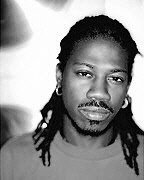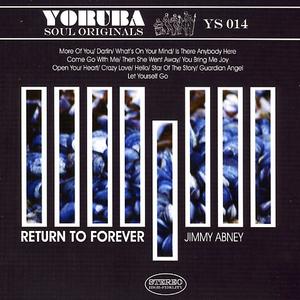DJ's, Audio Downloads, and Bitratesby DJ Rob Wegner
Summer 2008
As the DJ profession goes digital, the increasing reliance on internet downloads necessitates an explanation of the importance of file bitrates -- particularly as it relates to audio quality and sounding professional.
The more bits per second, the more audio resolution. Hence, an audio file with a bitrate of 128 kbit/s will have less sound quality compared to an audio file of 320 kbit/s. Likewise, an audio file of 320 kbit/s will have less sound quality compared to a .wav file of 1411 kbit/s.
As a rule, you should avoid playing songs with a bitrate below 192 kbit/s.
This is because tracks played on a quality sound system with a bitrate below 192 kbit/s will sound like an "AM radio on steroids." It's harsh sounding to the ears and will potentially have an adverse effect on your dance floor response.
You can often determine the bitrate of a song by placing the mouse cursor/pointer over the song file icon, whereby a box depicting the bitrate should open.
Be aware that some internet downloads -- particularly free/unlicensed downloads -- are of low bitrate quality. For example, a downloaded track could have been originally recorded from a radio station signal (FM radio stations have a bitrate of 96 kbit/s), which means that those tracks will sound harsh when played on an amplified system.
Bitrate Chart
8 kbit/s - telephone quality (using speech codecs) 32 kbit/s - MW (AM) quality96 kbit/s - FM quality128160 kbit/s - Standard Bitrate quality; difference can sometimes be obvious (i.e. bass quality)128 kbit/s - iTunes before "iTunes Plus"192 kbit/s - DAB (Digital Audio Broadcasting) quality. Quickly becoming the new 'standard' bitrate for MP3 music; difference can be heard by few people.224320 kbit/s - Near CD quality. Sound is nearly indistinguishable from most CDs.256 kbit/s - iTunes Plus320 kbit/s - XM Satellite Radio (unconfirmed)1411 kbit/s - .wav files
Ideally, you want to play the best audio quality tracks available (i.e., original CD, .wav or .aiff files). However, because these files consume a great deal of space (i.e., audio CD files typically consume 10 MB of computer disk space for every minute of music), these files take a lot of time to upload/download (even with high-speed internet connections). For this reason, large files are reduced utilizing programs such as Cdex 1.30 -- which helps to reduce upload/download time. Even when reducing larger audio files, I recommend maintaining the 192 kbit/s rule.
Related Links
WAV by Audacity.org
Inside the MP3 Codec -- Bitrates
My Listening Tests
Industry News
* First Sounds -- which is an informal collaborative of audio historians, recording engineers, sound archivists, scientists, other individuals, and organizations who aim to make mankind's earliest sound recordings available to all people for all time -- has retrieved the oldest known sound recording. The 1860 recording entitled Au Clair de la Lune--French folk song is a Phonautogram. The song could be heard here.
* DJ Qbert has launched a YouTube page depicting many scratch/DJ related videos. See Thud Rumble.
* DJ Emile of the Bombshelter DJ's (i.e., DJ Radar, DJ Z-Trip) will launch a non-credit advanced live-performance disc jockey techniques class at Scottsdale Community College in the Fall 2008. In addition, DJ Ruthless Ramsey Higgins will launch an advanced (non-credit) turntablism class in the Fall 2008. Both classes are scheduled to become accredited within the next year. Additional information can be retrieved at the SCC DJ Classes MySpace page.
* The DJ Times sponsored 2008 International DJ Expo heads to the Trump Taj Mahal Hotel & Casino in Atlantic City, New Jersey this August 11-14. According to the International DJ Expo, "being a DJ in 2008 means much more than mixing two records together. Regardless of where you're spinning - Top-40 venues, glammed-out hyper-branded superclubs, or dark-and-dirty late-night underground hotspots - today's DJ's need to be able to know how to rock the crowd, work with club promoters and managers, create original and exclusive productions in the studio, adapt to new advances in technology AND stay on top of the ever-changing state of the music business! The 2008 International DJ Expo's all-new DJ Culture & Music 2.0 Track is what you need to give you the insights and knowledge to get yourself to the next stage. How? By connecting DJs and Producers, both veterans and upstarts alike, with some of the industry's most knowledgeable and successful talents and business executives to learn, network, and exchange ideas."
* According to Bloomberg.com, the island of Ibiza -- known for its clubbing/DJ culture -- is seeking "to discard its reputation as a magnet for drug-taking nightclubbers and attract wealthy vacationers." See Bloomberg.com




































 Listen to radio42 - Music for Lounge-Lovers.
Listen to radio42 - Music for Lounge-Lovers.





